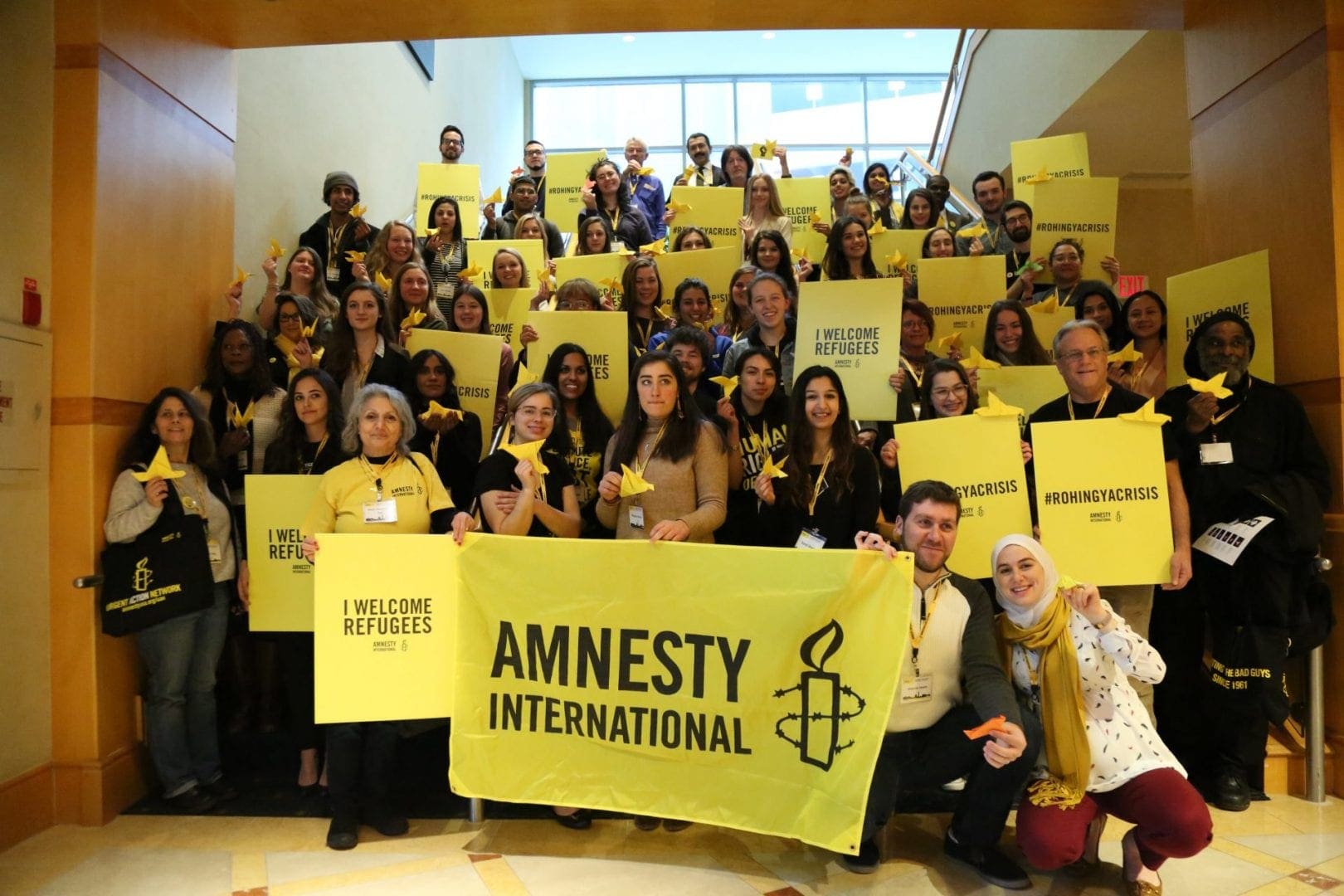We are activists on the frontlines.
Our volunteers shape, lead, and carry out our work to protect human rights. These volunteer leaders fill a wide range of critical roles: they start and run local groups, they manage legislative advocacy in the states, they drive campaigns in individual cases and on major reforms, and they engage more people in fighting for human rights.
In other words, volunteers change the world. Here are a few of their stories.

Become a Volunteer Leader
Get StartedOUR VOLUNTEER lEADERS
Alicia Koutsoulieris
Area Coordinator (AC)
ACs are volunteers that organize groups in their state to collaborate on initiatives, develop partnerships with other human rights activists, and mobilize to protect human rights.
Learn more.
Mohamed Abdelsatar
AIUSA Egypt Country Specialist
Country and Thematic Specialists are volunteers with expertise in specific areas who work to develop and implement AIUSA strategies to advance human rights.
Learn more.
Anita Teekah
Legislative Coordinator (LC)
LCs are volunteers that work in states to advance our legislative priorities to protect human rights.
Learn more.
Scott Langley
State Death Penalty Abolition Coordinator (SDPAC)
SDPACs are volunteers that organize and advocate at the state level to abolish the death penalty.
Learn more.
Kiera Glazer
Youth Leadership in Activism (YLA)
Youth Leadership in Activism is a volunteer leadership program at AIUSA encompassing four member leader roles: Peer Trainers, Student Activist Coordinators (SAC), Slack Community Managers and Social Media Managers.
Learn more.
Eva Frazier
Youth Collective (YOCO)
The Youth Collective is a national volunteer youth leadership body that provides thought leadership, strategy, consultation, and guidance to AIUSA.
Learn more.
This month, in my fourth year as Amnesty USA’s Executive Director, I have come to understand more deeply that what makes our human rights organization different and special are the volunteer leaders and activists who choose to give their power and courage to Amnesty International.
With authoritarian populists seeking to undermine rights at every turn, both here in the United States and all over the world, as political elites seek to impose their will through arms and bombs, you have said no to them, and yes to human rights for everyone, everywhere, over and over again. You have fought for individuals at risk here at home and around the world, and against systemic oppression. You are and will remain the activists that the despots and unaccountable fear. Hundreds of thousands of you took more than a million actions over this last year. Many of you led those efforts as volunteer leaders.
And Amnesty will need your power and courage even more in this year, when we have to put human rights on the ballot in the US elections and in the biggest elections year our world has ever seen. It was so good to see so many of you at our Annual General Meeting. I’m hoping that thousands of you will vote for our new board members, and some of you will join the board as a result. Keep fighting to make Amnesty the organization you believe it can be. We on staff will be right there with you, and so I’m proud to say, 'We appreciate you, this month and every month.'
